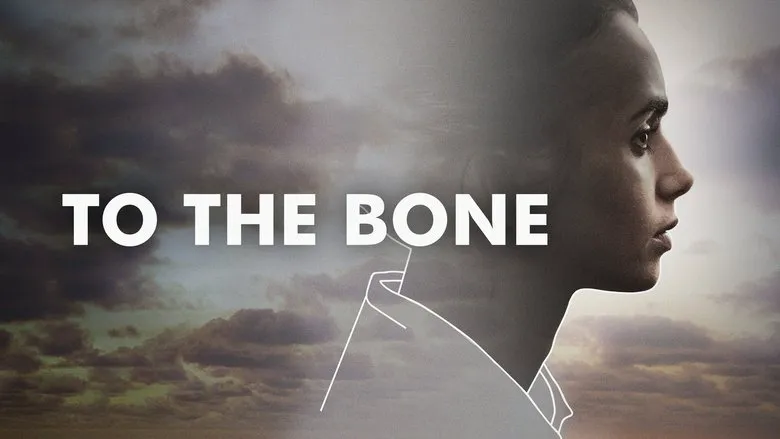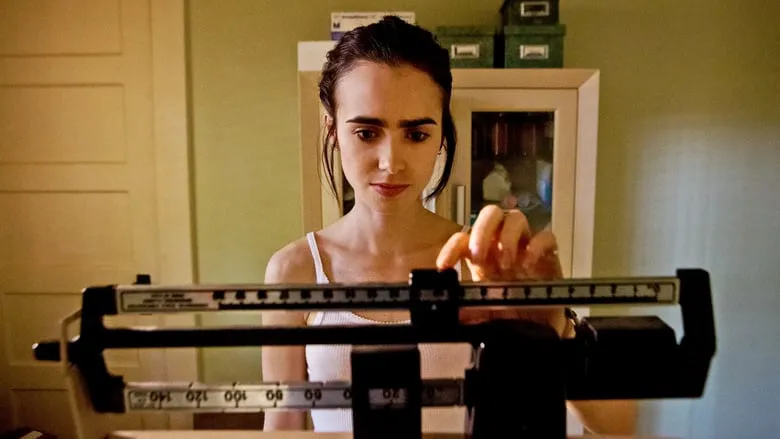“Off the Mark”: Films You Might Have Missed - “To the Bone”
In our weekly “Off the Mark” column, we highlight films that didn’t make it to Russian cinemas but are still worth your attention.
Twenty-year-old Ellen is struggling. Her dark artwork, posted online, has been linked to a teenager’s suicide across the country. Overwhelmed by guilt, she withdraws and stops eating. Her parents try to help her through various clinics, but Ellen never stays long, until she joins Dr. Beckham’s unconventional program. At a secluded house, she finds herself surrounded by others battling similar demons. Ellen must confront the reasons behind her life-threatening thinness and discover if she can overcome her illness.

After premiering at the Sundance Film Festival, “To the Bone” didn’t find a distributor. Netflix acquired the $8 million film for exclusive streaming.
The Pitfalls and Potential of Illness Narratives
Films about serious illnesses often risk becoming manipulative. Simply adding dark circles under a character’s eyes, tousling their hair, and making them slouch can elicit sympathy, regardless of the script’s quality. However, this is a cheap trick. A good writer would never resort to it, and a skilled director wouldn’t film it. Illness can be a backdrop, a magnifying glass for emotions, or a setting for exploring relationships. Only then can a film transcend mere hospital scenes and become a true drama.

Several members of the production team had personal experience with the issues depicted in the film. Lily Collins and Marti Noxon have battled anorexia, and Keanu Reeves has struggled with severe depression.
Characters That Resonate
The key lies in creating compelling characters, regardless of their surroundings. In the modest drama “To the Bone,” the characters are complex, contradictory, and even enigmatic. This elevates the film beyond the ordinary. While the plot may be predictable, “To the Bone,” produced by Marti Noxon, possesses a soul. It has substance, making it a captivating watch.

Familiar Territory, Fresh Perspective
The premise is familiar. Characters in countless films have found themselves in life-or-death situations in clinics, either succumbing to their illness or finding the will to fight. They encounter others’ problems and, in turn, find a reason to live. However, “To the Bone” presents this familiar narrative with a fresh perspective. The filmmaker skillfully conceals diagnoses and the underlying causes of psychological issues. She highlights the characters’ strengths and weaknesses, creating conflict that sparks emotion.

Balancing Clichés and Subtlety
At times, “To the Bone” feels overly straightforward. The dance in the rain, the loss of a child, the escape from the clinic, and the doctor’s revelations can feel heavy-handed. However, these moments are balanced by ambiguity and subtle hints. The absent father, Dr. Beckham’s methods, and the open-ended finale leave room for interpretation. The film possesses sincerity and courage, qualities that the doctor seeks in his patients and that the writers and director demand from the audience.

A Challenging but Rewarding Watch
The film warns viewers upfront: prepare for harsh language, emaciated bodies, and the grim realities of extreme thinness. “To the Bone” doesn’t shy away from uncomfortable topics. While there are moments of humor, the film primarily focuses on drama. It explores dysfunctional families, the curse of talent, and the struggle to find value in one’s own life. The characters are on a difficult journey to survive, heal, and find happiness. They must forgive themselves, give themselves a chance, and realize that they are loved.

Strong Performances
Despite the challenging subject matter, the film is brilliantly acted. Lily Collins is unrecognizable compared to her role in “Snow White.” Keanu Reeves is surprisingly convincing as the wise mentor, even without a pair of guns. Carrie Preston, Leslie Bibb, and Kathryn Prescott provide excellent support, while Alex Sharp adds energy to the predominantly female cast. The ensemble truly captures the film’s mood, delivering nuanced and heartfelt performances.
“To the Bone” may not have reached a wide audience, but it’s not the kind of film you watch to pass the time. It requires a specific mood and may resonate most with those facing similar challenges. Like medicine, it can only help when you’re ill. However, at the right moment, Ellen’s story can be a lifeline, a sip of water, or a crumb of hope that rekindles the desire to live.